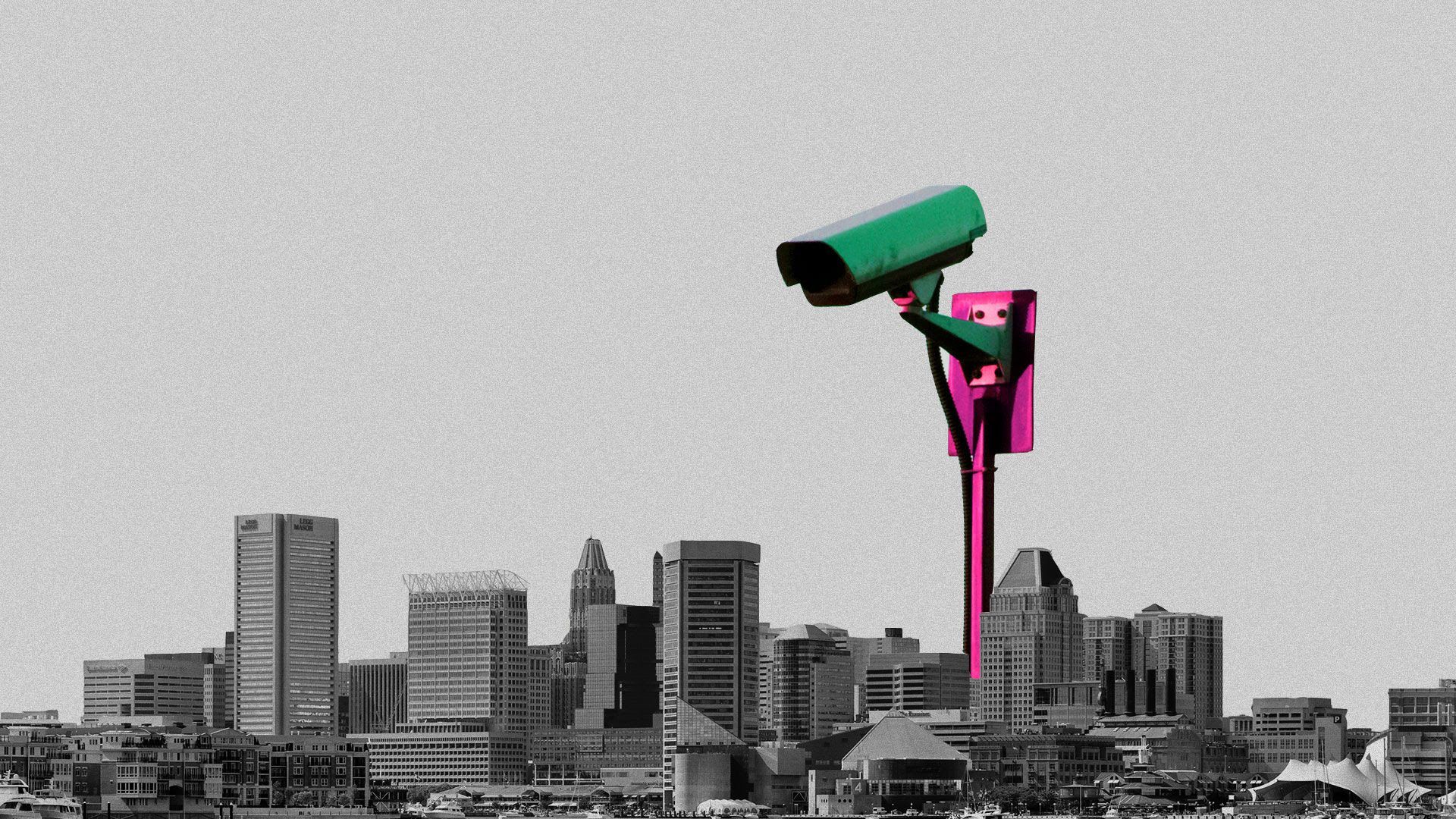
Illustration: Aïda Amer/Axios.
Baltimore will become the first city in the U.S. to pilot aerial surveillance, funded by philanthropists, to understand its impact on crime, per the Baltimore Sun.
Driving the news: Baltimore Police Commissioner Michael Harrison, who's been skeptical of the effectiveness of surveillance planes, has reversed course and said he supports a pilot program to let three private planes monitor the city from above.
Why it matters: The use of surveillance planes has been a controversial topic in Baltimore since 2016, when Bloomberg reported private surveillance planes had been circling the city in secret.
- On one side of the debate are advocates, including the ACLU, who say use of the planes — called "spy planes" by some — will be a drastic privacy invasion.
- On the other are community groups searching for ways to curb crime and record-high homicide rates.
How it works: The program is run by Ohio-based Persistent Surveillance Systems, which is backed by Texas billionaires Laura and John Arnold.
- Three planes would record during daylight hours from 8,500 feet above the ground, but would not be used for real-time surveillance. Instead, law enforcement could use the footage to investigate past crimes, per the Sun.
- "By funding a limited-duration pilot and a fully independent evaluation, we hope to learn whether this technology can be a useful part of Baltimore’s crime reduction strategy," Arnold said in a statement.
- The 4-to-6-month pilot will begin in May. Harrison said he would halt the program if it doesn't show results.
Of note: Baltimore Mayor Bernard C. "Jack" Young and Maryland Gov. Larry Hogan support the decision.
Go deeper: Baltimore wrestles with aerial surveillance
